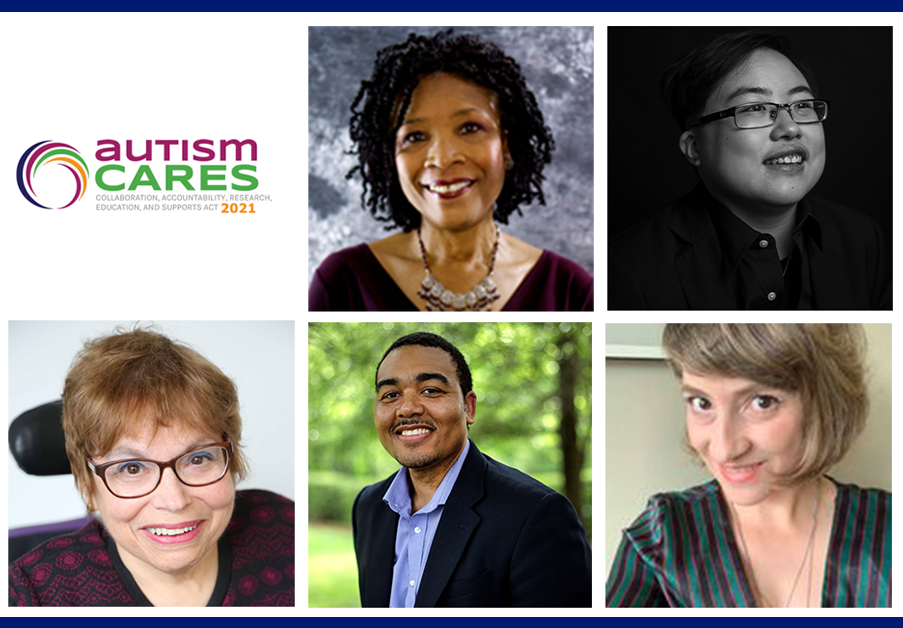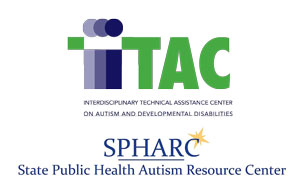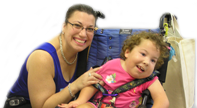2021 Autism CARES Grantee Meeting: Committing to Health Equity Across the Lifespan
| Download |
|
|
2:00 p.m. - 5:00 p.m. ET
Location: Zoom
The 2021 Autism CARES Meeting will be held Wednesday, July 21st from 2pm - 5pm ET via Zoom. The virtual event is an opportunity for HRSA-funded CARES grantees (representing research, training, and state systems) to share information about activities within their respective networks, discuss emerging trends, and facilitate meaningful collaboration.
REGISTRATION IS NOW OPEN
OPENING PANEL - Why Language Matters: A Panel Discussion on Equity and Intersectionality

FACILITATOR:
- Tawara Goode, PhD | Director, National Center for Cultural Competence, Georgetown University
Tawara Goode is an assistant professor in the Department of Pediatrics, Georgetown University Medical Center in Washington, D.C. She has been on the faculty of the Georgetown University Center for Child and Human Development (GUCCHD), for over 30 years and has served in many capacities. She has degrees in early childhood education, and education and human development. Professor Goode has extensive experience as a principal investigator for federal and private sector grants and contracts. She is the director of the National Center for Cultural Competence (NCCC) at GUCCHD. She is also the Deputy Director of the GUCCHD's University Center for Excellence in Developmental Disabilities and focuses on national level efforts to advance and sustain cultural and linguistic competence in this field. Her publications include peer reviewed articles, book chapters, monographs, policy papers, guides and instruments that support cultural and linguistic competence in a variety of human service and academic settings. Professor Goode has and to serve on numerous boards, commissions and advisory groups at the local, regional, and national levels that are concerned with the health, mental health, and well-being of culturally and linguistically diverse populations and communities in the U.S. its territories, and in tribal communities.
PANELISTS:
- Lydia X. Z. Brown, JD | Disability Justice Advocate and Attorney
Lydia X. Z. Brown is an advocate, organizer, attorney, strategist, and writer whose work focuses on interpersonal and state violence against disabled people at the intersections of race, class, gender, sexuality, faith, language, and nation. They are Policy Counsel for Privacy & Data at the Center for Democracy & Technology, focused on algorithmic discrimination and disability, as well as Director of Policy, Advocacy, & External Affairs at the Autistic Women & Nonbinary Network. Lydia is also adjunct lecturer and core faculty in Georgetown's Disability Studies Program, and adjunct professorial lecturer in American University's Department of Critical Race, Gender, and Culture Studies. They serve as a commissioner on the American Bar Association's Commission on Disability Rights, chairperson of the ABA Civil Rights & Social Justice Section's Disability Rights Committee, board member of the Disability Rights Bar Association, and representative for the Disability Justice Committee to the National Lawyers Guild's National Executive Committee. Lydia founded the Fund for Community Reparations for Autistic People of Color's Interdependence, Survival, and Empowerment, and they are creating Disability Justice Wisdom Tarot. Lydia is past chairperson of the Massachusetts Developmental Disabilities Council, and former Justice Catalyst Legal Fellow at the Bazelon Center for Mental Health Law. Often, their most important work has no title, job description, or funding, and probably never will.
- Judith Heumann, MPH | Disability Rights Advocate and Author
Judith (Judy) Heumann is a lifelong advocate for the rights of disabled people. She contracted polio in 1949 in Brooklyn, New York and was denied the right to attend school because she was a "fire hazard" at the age of five. Her parents played a strong role in fighting for her rights as a child, but Judy soon determined that she, working in collaboration with other disabled people, had to play an advocacy role due to the continuous discrimination.
She is now an internationally recognized leader in the disability rights community. Her memoir, authored with Kristen Joiner, of Being Heumann "Being Heumann: An Unrepentant Memoir of a Disability Rights Activist," is coming out through Penguin Random House in February of 2020. She also is a part of a film called Crip Camp which shares the story of disabled teens at camp in the 1970's and how they helped sparked the disability civil rights movement. She has been featured in numerous documentaries on the history of the disability rights movement and she delivered a TED talk in the spring of 2018. Her story was also told on Comedy Central's Drunk History in early 2018, in which she was portrayed by Ali Stroker, the first disabled woman to play on Broadway. She also currently serves on several non-profit boards and is an Ambassador for Leonard Cheshire based in London.
- Brian Boyd, PhD | Director, Juniper Gardens Children's Project, Kansas University
Dr. Brian Boyd is a Professor and Director of the Juniper Gardens Children's Project at the University of Kansas. As Director of a community-based, applied research center focused on child development, he has been heavily engaged in research that involves the most vulnerable, and often marginalized, populations. As a special educator by training, much of his research has involved the development and evaluation of evidence-based practices that could be implemented within school-based contexts. This work led to some of the first comparative efficacy studies of classroom-based interventions for preschool-aged children on the autism spectrum. His more recent work has focused on how issues of implicit bias and race affect the lives and outcomes of families and autistic individuals of color, and strategies to address known racial / ethnic disparities. Dr. Boyd's work has been continuously funded by both the Institute of Education Sciences and the National Institutes of Health. Currently, he serves on multiple national boards that are dedicated to improving the outcomes of individuals with disabilities and those from historically underserved communities.
- Sara M. Acevedo, PhD | Assistant Professor of Disability Studies, Miami University
Dr. Sara M. Acevedo is an autistic, mestiza educator and disability justice scholar-activist born and raised in Colombia, South America. She is Assistant Professor of Disability Studies at Miami University (Ohio) and faculty associate of the Doris Bergen Center for Human Development, Learning, and Technology. She has served a three year term on the Board of Directors with the Society for Disability Studies co-chairing the Policy and Publications committee. She serves in the editorial boards of Disability and the Global South: The International Journal and Ought: The Journal of Autistic Culture. Dr. Acevedo's interdisciplinary work combines linguistics, critical disability studies, activist anthropology, and spatial theory among others. She was awarded the Presidential Medallion and Proclamation for her work with the DEI task force in the Summer of 2020 and received the Student Recognition for Teaching Excellence Award in the Fall of 2020. She is currently a nominee for the D-30 Impact List for disability leadership and a finalist for the Ford Foundation Global Fellowship. At the moment, Dr. Acevedo is working in partnership with UNESCO-Cerlalc to develop content on neurodiversity and literacy alongside a group of experts from across the Iberian-American region.
The Autism CARES Meeting is hosted by AUCD's ITAC, in collaboration with AMCHP's SPHARC and HRSA-MCHB. If you have questions, please contact Jackie Czyzia at AUCD.










